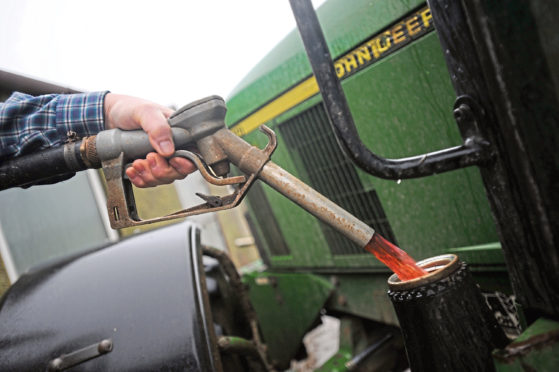Fuel processing giant Petroineos has called farmers to a meeting to discuss growing industry concerns that red diesel is causing damage to farm machinery.
NFU Scotland (NFUS) and machinery ring Ringlink Scotland say the meeting, which is due to take place later this month, has been organised as a result of widespread issues with machinery believed to be caused by a problem with fuel.
“Reported issues include poor performance, blocked filters, low working hours before filter changes are required and injector failure,” said NFUS and Ringlink.
“Due to the number of vehicles now affected, some areas are experiencing filter shortages and a lack of workshop availability for required repairs.”
The organisations said farmers had speculated the problems were being caused by abnormally high levels of biodiesel in the fuel.
However, independent tests of three samples found biodiesel levels to be within prescribed limits as set out in legislation.
A Petroineos spokesman said it had been made aware of problems encountered with agricultural and industrial equipment.
He added: “Petroineos, as Scotland’s only refinery, is a major, but not only, producer of GasOil for distribution across Scotland and has been engaged with stakeholders since the problems came to light at the beginning of October.
“Petroineos manufacture fuels meeting or exceeding British Standards, in this case for GasOil: BS 2869 Class A2, and have a rigorous testing and analysis process adhering to our ISO9001:2015 quality system requirements. All GasOil distributed from the Petroineos Refinery has met the requirements of BS 2869 Class A2.
“We have received dozens of samples back from customers for analysis and everyone has met the required standard. We are confident in our systems, processes and product sold to market.”
NFUS and Ringlink said there were no apparent patterns with regards to make, model, or type of machinery affected and nor were there links with specific end suppliers, although geographically the issue is being seen from central Scotland down to the Borders.
Affected farmers are asked to consult their fuel supplier for individual advice and, in instances where the addition of a fuel additive is suggested, they are advised to check the additive is compatible with their machinery before using it.
nnicolson@thecourier.co.uk










